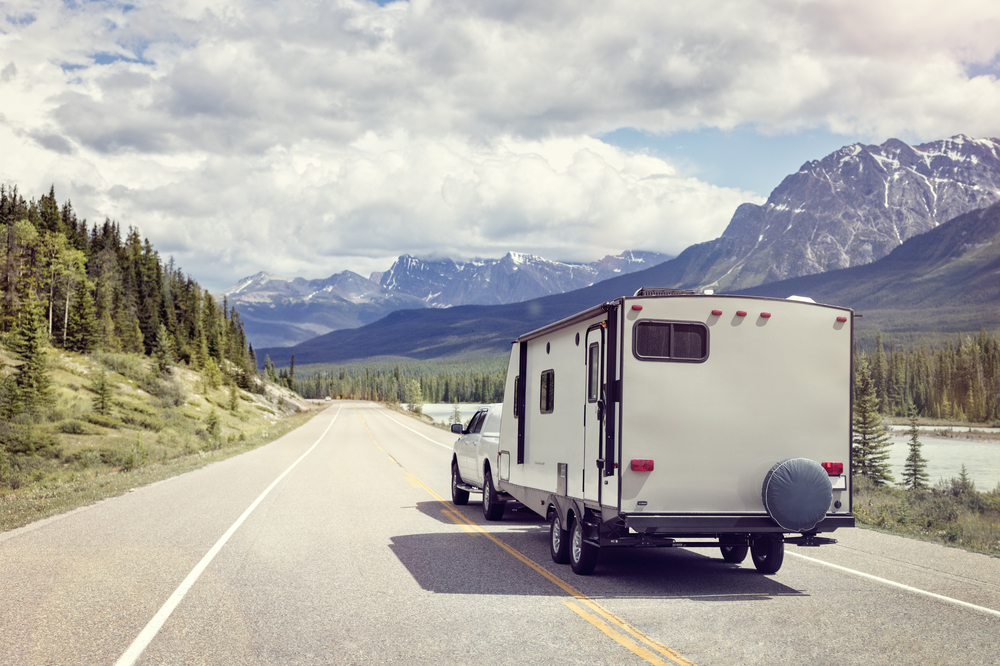
Does My Truck Insurance Also Cover My Trailer?
Wednesday, October 25, 2017
If you have a storage trailer, a boat trailer, or another kind of trailer you use that is towed behind your vehicle, you’ll need to make sure that this is insured in addition to purchasing insurance on your vehicle. Many people forget to check if their trailer is covered under their truck insurance, but this can be a pretty expensive mistake if you were to be involved in an accident with your trailer.
Typically, most automobile insurance policies will have a level of liability coverage for your trailer, but only if you own the trailer as well. If there is an accident involving your vehicle while you are towing a trailer, your auto insurance can cover the trailer. However, every auto insurance policy is different; you will need to look at the details of your existing auto insurance policy to make sure that your trailer is covered in case of an accident or other damage.
Trailer Insurance
State laws vary when it comes to their regulations on trailers. Each insurance company operates within state and federal guidelines, so policies between insurance companies can differ regarding trailer coverage. You may find that you need to purchase a policy specific to your trailer and whatever you have in or on that trailer. Sometimes, your insurance policy will cover your trailer, but not its contents.
If you find that your trailer isn’t covered under your truck or auto insurance, you will need to purchase an insurance policy specific to your trailer. Your trailer could be covered by its own insurance policy, or a collision or otc (other-than-collision) policy. Some insurance policies may require you to list your trailer on the declarations part of your insurance policy in order for it to be covered at all.
Insurance policies for your trailer vary, so make sure to shop around when looking for the right insurance policy to help protect your trailer and its contents. You may find that your existing auto insurance policy has liability coverage that does cover your trailer while it is connected to your truck or vehicle; other liability coverage may not extend to your trailer when it is parked or unattached from your vehicle.
Getting your trailer its own collision or otc (other than collision) insurance policy may be the smart way to make sure you have some financial coverage, regardless of where it is. Your auto insurance may require you to have an endorsement on your personal auto insurance policy to tow a trailer, but this could also depend on what kind of trailer you are towing.
Insurance Requirements for Different Trailers
Travel trailers often need their own insurance policies, while trailers that tow other vehicles, boats, or ATVs could be insured under your automobile insurance policy. Check with your insurance company about the boundaries of your extended coverage.
Another detail to make sure you check up on is whether or not your auto insurance will cover the contents of your trailer. If you are towing personal items, you’ll likely want to make sure that you have some financial coverage in case those items are damaged or destroyed in transit.
Additionally, if you have a boat, an ATV, or are towing another vehicle, you definitely want to make sure you have trailer insurance coverage. These vehicles are expensive and are likely very important to you; any damage done to them could be catastrophic if you aren’t financially prepared to repair or replace them in case of an accident. Even if you know your trailer is covered under your auto insurance, do what you need to do to make sure the trailer’s contents are also covered by an insurance policy.
What Trailers Aren’t Covered
If you are moving or need to rent a trailer, it likely won’t be covered under your auto insurance. You will need to purchase insurance that will cover your use of the rental trailer. Moving companies or other rental companies will usually have a policy they distribute for the use of their vehicles and trailers, which is may be enough for you.
Before hooking up your trailer to your vehicle, make sure to check a few things first. Always make sure your primary vehicle is insured; without this insurance, your trailer may not be covered at all. Secondly, make sure your trailer is covered by your auto insurance or if you need to purchase a separate insurance policy. Finally, ask your insurance agent if you need to purchase more insurance for the belongings you have in or on the trailer.
Protective Agency has the information you need to find the right auto and trailer insurance policies. For a free quote contact our team at ProtectiveAgency.com or call (877) 739-9367. Our licensed insurance agents will be happy to answer any questions you have.
